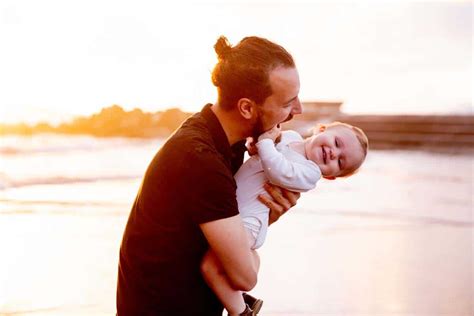
A widower, identified as “GRIEVING MAN,” is facing opposition from his late wife’s parents regarding his new romantic relationship, despite having been her devoted caregiver during her long battle with illness. The in-laws disapprove of his moving on, believing it is too soon after their daughter’s death, creating a rift within the family.
GRIEVING MAN, who wrote to the “Dear Abby” advice column, detailed his experience of caring for his wife for several years as she suffered from a debilitating disease. He described his commitment to her well-being, stating, “I took care of her every need for several years as she slowly declined.” After her passing, he found solace and companionship with a new partner, a development his in-laws have met with hostility. They accuse him of disrespecting their daughter’s memory and moving on too quickly. He seeks guidance from Abby on how to navigate this challenging situation and maintain a relationship with his grandchildren amidst the disapproval of their maternal grandparents.
The core conflict stems from differing perspectives on grief and healing. GRIEVING MAN feels he has earned the right to move on with his life after enduring significant emotional and physical strain as a caregiver. He believes he can honor his late wife’s memory while also pursuing his own happiness. His in-laws, however, appear to be struggling with their grief and may view his new relationship as a betrayal of their daughter’s memory. This difference in coping mechanisms has led to a significant strain on their relationship, with the potential to affect GRIEVING MAN’s access to his grandchildren.
Abigail Van Buren, who pens the “Dear Abby” column, advised GRIEVING MAN to proceed with caution and empathy. She acknowledged the in-laws’ pain and suggested open communication to help them understand his perspective. She wrote, “They are still grieving, and may be seeing your moving on as a betrayal of their daughter’s memory.” Abby emphasized the importance of validating their feelings while also asserting his right to find happiness again. She also advised him to seek legal counsel to ensure his visitation rights with his grandchildren are protected.
This situation highlights the complexities of grief, remarriage after loss, and the delicate balance of family dynamics. It raises questions about the expectations placed on widows and widowers, the appropriate timeline for moving on after a spouse’s death, and the rights of surviving partners to find happiness again. It also underscores the importance of communication, empathy, and legal protection in navigating such sensitive family matters. The case is not unique, as many individuals face similar challenges when attempting to rebuild their lives after loss, particularly when family members hold differing opinions and expectations.
The emotional toll of caregiving is a significant factor in this scenario. Studies have shown that caregivers often experience chronic stress, burnout, and depression. The demands of caring for a loved one with a serious illness can be overwhelming, leaving caregivers with little time or energy for their own needs. After the death of the person they cared for, caregivers may experience a complex mix of grief, relief, and exhaustion. Some may feel a sense of freedom and a desire to reclaim their lives, while others may struggle with guilt or a sense of loss of purpose. In GRIEVING MAN’s case, his in-laws may not fully appreciate the sacrifices he made during his wife’s illness, leading to a misunderstanding of his need to move forward.
The societal expectations surrounding grief and remarriage can also contribute to the conflict. Traditionally, there has been a societal pressure on widows and widowers to mourn for an extended period before considering a new relationship. While these expectations have evolved over time, they can still influence family members’ perceptions and reactions. Some may believe that moving on too quickly is disrespectful to the deceased spouse or that it diminishes the love and commitment they shared. These beliefs can lead to judgment, disapproval, and strained relationships. In GRIEVING MAN’s case, his in-laws may be adhering to these traditional expectations, making it difficult for them to accept his new relationship.
The legal aspects of visitation rights are crucial in this situation. Grandparents’ rights vary by state, but generally, grandparents have a greater chance of obtaining visitation rights if the parents are deceased or if there is a disruption in the family, such as a divorce. However, even in these situations, courts typically prioritize the wishes of the surviving parent. Abigail Van Buren’s advice to seek legal counsel is prudent, as it will help GRIEVING MAN understand his rights and options for maintaining a relationship with his grandchildren. A family law attorney can advise him on the specific laws in his jurisdiction and represent his interests in court if necessary.
The importance of open and honest communication cannot be overstated. GRIEVING MAN needs to communicate his feelings and needs to his in-laws while also acknowledging their grief and pain. He can explain that his new relationship does not diminish his love and respect for their daughter and that he is not trying to replace her. He can also emphasize his desire to maintain a strong relationship with his grandchildren and reassure them that he will always cherish their mother’s memory. However, communication may be challenging if the in-laws are unwilling to listen or compromise. In such cases, seeking the help of a professional mediator may be beneficial. A mediator can facilitate communication between the parties and help them reach a mutually acceptable agreement.
The long-term implications of this conflict could be significant. If GRIEVING MAN is unable to resolve the conflict with his in-laws, he may lose contact with his grandchildren. This would be a devastating loss for him and could also negatively impact the children’s well-being. It is essential for all parties to prioritize the children’s best interests and to find a way to co-exist peacefully. This may require compromise, empathy, and a willingness to put aside personal feelings.
The situation also raises broader questions about how society views and supports grieving individuals. There is a need for greater understanding and acceptance of the diverse ways people cope with loss. Grief is a highly individual experience, and there is no right or wrong way to grieve. Some people may find solace in new relationships, while others may prefer to remain single. It is important to respect individual choices and to avoid imposing judgment or expectations. Furthermore, there is a need for more resources and support services for grieving individuals and their families. These resources can provide emotional support, practical assistance, and guidance on navigating the challenges of loss.
This complex scenario underscores the multifaceted nature of grief, family dynamics, and societal expectations. Navigating such sensitive situations requires empathy, communication, and a willingness to compromise. While GRIEVING MAN’s situation is unique, it highlights the universal challenges faced by individuals who are trying to rebuild their lives after loss and the importance of seeking support and understanding from family, friends, and professionals. The case serves as a reminder that grief is a personal journey and that there is no one-size-fits-all approach to healing and moving forward. The support of legal counsel, therapists, and grief support groups can be invaluable in navigating these difficult times and ensuring that the rights and needs of all parties are respected.
Furthermore, this case illuminates the often-overlooked challenges faced by caregivers. Caregivers dedicate significant time and energy to supporting loved ones, often at the expense of their own well-being. The emotional and physical demands of caregiving can be overwhelming, and caregivers may experience burnout, stress, and isolation. After the death of the person they cared for, caregivers may face a complex mix of emotions, including grief, relief, and exhaustion. It is crucial to recognize and support caregivers both during and after their caregiving responsibilities. This support can include respite care, counseling, and access to resources and support groups. By acknowledging the sacrifices made by caregivers and providing them with the support they need, society can help them navigate the challenges of loss and rebuild their lives.
The “Dear Abby” response, while providing compassionate advice, also highlights the limitations of relying solely on advice columns for complex legal or family matters. While Abby’s suggestion to seek legal counsel is sound, it underscores the importance of consulting with qualified professionals who can provide personalized guidance based on specific circumstances and legal jurisdictions. Advice columns can offer general support and perspectives, but they should not be considered a substitute for professional advice.
In conclusion, GRIEVING MAN’s situation is a poignant reminder of the complexities of grief, family dynamics, and societal expectations. His experience underscores the importance of empathy, communication, and legal protection in navigating such sensitive family matters. It also highlights the need for greater understanding and support for grieving individuals and caregivers. By addressing these challenges with compassion and respect, society can help individuals rebuild their lives after loss and ensure that the rights and needs of all parties are respected. The long-term well-being of the grandchildren should remain a central focus as the family navigates this difficult period. A resolution that allows GRIEVING MAN to maintain a relationship with his grandchildren, while also respecting the grief of his in-laws, is the most desirable outcome. Achieving this outcome will require open communication, empathy, and a willingness to compromise on the part of all involved.
Frequently Asked Questions (FAQ)
1. Is it normal for in-laws to disapprove of a widower’s new relationship shortly after his wife’s death?
It’s not uncommon, but not necessarily “normal” in the sense of universally accepted. Grief manifests differently for everyone. In-laws may disapprove due to their own grief, feeling it’s too soon, or perceiving it as disrespectful to their daughter’s memory. Societal expectations about mourning periods can also influence their reaction. There is no prescribed timeline for grieving, and what feels right for the widower may not align with his in-laws’ expectations. It’s important to acknowledge their feelings while also recognizing the widower’s right to move on.
2. What legal rights does a widower have regarding visitation with his grandchildren if his in-laws disapprove of his new relationship?
Grandparents’ visitation rights vary significantly by state. Generally, grandparents have a better chance of obtaining visitation if a parent is deceased, but courts often prioritize the surviving parent’s wishes. Some states have specific laws addressing grandparents’ rights in such situations. Factors considered by courts often include the relationship between the grandparents and grandchildren, the wishes of the child (if of sufficient age and maturity), and the best interests of the child. Seeking legal counsel is crucial to understand the specific laws in the relevant jurisdiction and to explore options for securing visitation rights. A family law attorney can advise on the likelihood of success and the steps required to petition the court.
3. How can a widower balance honoring his late wife’s memory with his desire to move on and find happiness with a new partner?
Balancing honoring the past with embracing the future is a delicate process. A widower can honor his late wife by keeping her memory alive through stories, photos, and traditions. He can also continue to uphold values and commitments that were important to her. At the same time, it’s crucial to acknowledge his own needs and desires for companionship and happiness. Openly communicating with his new partner about his past relationship and setting healthy boundaries can help navigate this balance. It’s also important to remember that moving on doesn’t diminish the love and respect he had for his late wife; it simply acknowledges his need to rebuild his life. Therapy or grief counseling can provide support and guidance in navigating these complex emotions.
4. What steps can the widower take to improve his relationship with his disapproving in-laws and potentially gain their acceptance of his new relationship?
Improving the relationship requires empathy, patience, and open communication. The widower can start by acknowledging their grief and validating their feelings. He can express his understanding of their perspective and reassure them that his new relationship does not diminish his love and respect for their daughter. He should avoid defensiveness and listen actively to their concerns. Sharing positive memories of their daughter and involving them in activities that honor her memory can also help. Over time, as they see that his new relationship does not erase the past or harm the grandchildren, they may become more accepting. Professional mediation can also facilitate communication and help the parties reach a mutually acceptable agreement.
5. What resources are available to help widowers cope with grief and navigate the challenges of remarriage or new relationships after loss?
Numerous resources are available to support widowers. Grief counseling and therapy can provide emotional support and guidance in processing grief and developing coping mechanisms. Support groups, both in-person and online, offer a safe space to connect with others who have experienced similar losses and share experiences. Books and articles on grief and remarriage can provide insights and practical advice. Organizations like the Widowers Grief Support Network, and local hospice organizations often offer grief support services. Additionally, relationship counseling can help navigate the challenges of forming new relationships after loss, addressing issues such as blending families, setting boundaries, and communicating effectively with a new partner. Seeking legal counsel is also crucial to address issues related to visitation rights and estate planning.









